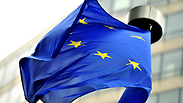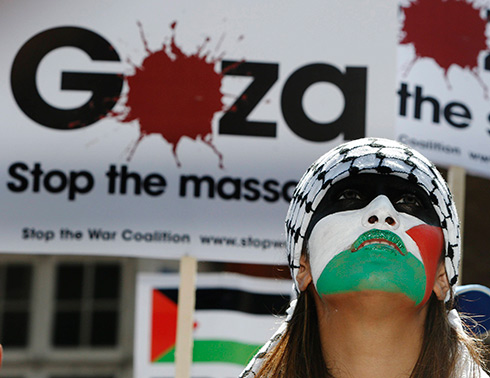
Israel shouldn't give up on Europe
Op-ed: An increasing number of Europeans, who are realizing the dangers posed by radical Islam, hold the key to improved relations with Israel.
This fear has also been expressed in recent articles which claimed that Israel was losing European support.
Unlike those who tend to lament Israel's relations with Europe, I am detecting signs of a positive change in the European stance towards Israel, and I believe there is a future to the relations with Europe.
While in the past the majority of the European public was inclined to show understanding and forgiveness towards the violence used by terror organizations like Hamas, whose main claim was that the Palestinians are living under an occupation and siege and that the only way open to them is the road of violence, they are slowly adopting a perception that an appeasing response towards Hamas or terrorists in general may be a detriment. Therefore, we must now – more than ever – work to strengthen the relationship with Europe.
When looking at the anti-Israel protests in Europe, we may be under the impression that the European public is against us. But if we look at the participants, we will see that most of them belong to the Muslim community or to left-wing organizations, and especially to the far left. In fact, some of the protests were held in the Turkish language rather than in the local language (for example, in Austria).
In addition, the change in the European stance towards Israel is also reflected in the European press. Although the European press continues to support the Palestinian side, the words it chooses to use are softer. For example, German newspaper Frankfurter Allgemeine uses words like "Israeli defense" rather than "Israeli offense," as well as the phrase "terror tunnel" rather than a more neutral description. Articles about the radical Islam and its link to anti-Semitism have also been published recently.
This does not only characterize Germany but is also expressed in other European countries. In a survey conducted in France recently, 74% of the French people said they did not support any side (only 17% support the Palestinian side and 9% support Israel). Even French daily Libération expressed doubts over the number of Palestinian casualties in Operation Protective Edge.
Moreover, the outstanding victory of right-wing parties in the recent European Parliament elections reflected a great concern among the European public in regards to the existence of Muslim immigrants in Europe and their influence not only on the European culture and identity, but also on personal safety.
Some of the right-wing leaders like Nigel Farage, the UKIP leader, which won the majority of votes in Britain, is an ardent supporter of Israel and is demanding a less critical stance from European Parliament towards Israel.
Surprisingly, even the far right parties (especially in Western Europe), which were anti-Semitic and anti-Israel in the past, have changed their ways and have begun supporting Israel, while stressing Europe's commitment to guarantee the safety of Jews living within it.
In summary, we are witnessing signs of a change in the European discourse about Israel and more Europeans are realizing the dangers radical Islam poses to Europe. Innovative PR activity stressing the shared threat is the key to advancing the relations with Europe and increasing the European public's support for Israel.
Dr. Esther Lopatin is the director of the Center for European Studies at the Interdisciplinary Center (IDC), Herzliya.












